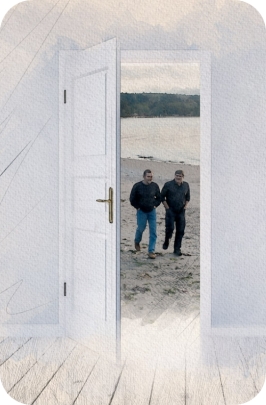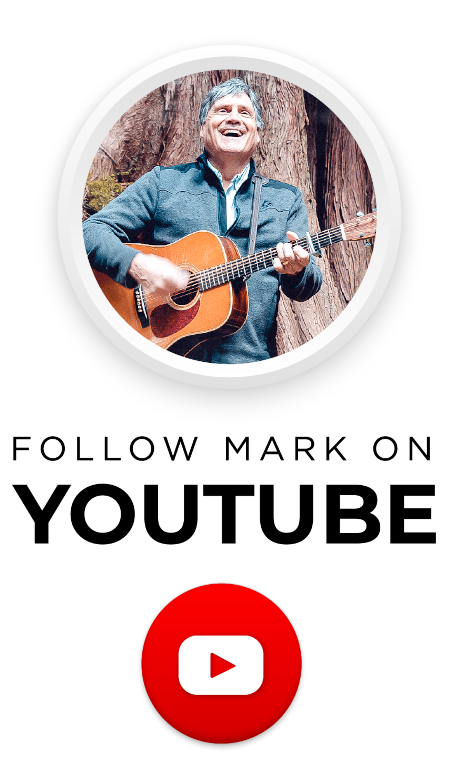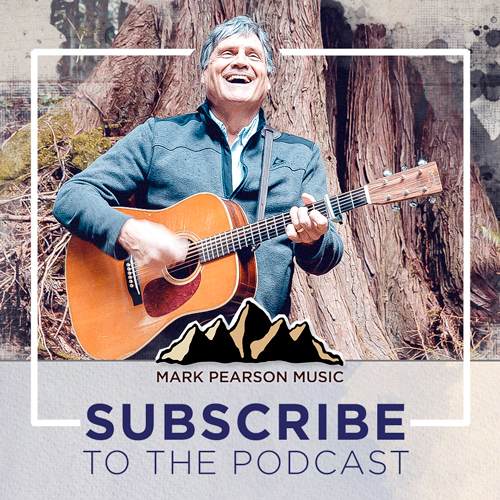I don’t know where the good times go but I won’t be far behind ‘em
I don’t know where the good times go but I’m goin’ out to find ‘em
I can’t stay where the sun don’t shine dark clouds aint no friend of mine
I don’t know where the good times go but I won’t be far behind ‘em
Welcome to Songs and Stories from Home. In these episodes I talk about my longtime friendship and musical partnership with Mike McCoy in what I’m calling the Dear Partner Letters. You just heard him singing I Don’t Know Where The Good Times Go But I Won’t Be Far Behind ‘Em recorded in 1983 accompanied by musicians we met when we recorded the Between Friends album a couple of years earlier.
Dear Partner,
Listening to you sing with those musicians nearly forty years later delights and thrills me to this day. Good music. Even better the process and the people we met. People like John Morton, Dan Dean, Tom Collier. And of course Reed Ruddy and all he has meant and that he and his family continue to mean. Ted Brancato. His role musically is more important now than ever and his family became a second family to me.
The previous letter ended with us on the steps behind Treats Restaurant, the night my dad flew back to Spokane and discovered he was close to financial ruin. It would take some years, but he would come back, in some ways stronger than ever. We learn a lot about ourselves and people we love when things are hardest, when they appear darkest.
Our Between Friends album came out in June of 82. We did a couple of concerts that doubled as album release parties. There was one at the Moore Theater in Seattle and another at the Opera House in Spokane. The musicians who played on the album joined us. And that summer I drove around bringing promotional copies of the album to various radio stations in Northwest.
It was always understood your job, your career, was in teaching, so we didn’t make many plans to sing and promote the music that way. It could be frustrating, but at the time I still couldn’t imagine going on stage without you. The trips to Nashville were filled with lots of no’s, a few maybes, and one big yes. A woman named Peggy Bradley thought my songs were something special, and she would continue to champion my music for years.
The house you built turned out beautifully. It was on a pie shaped lot that gave you some waterfront on Little Beaver Lake outside of Issaquah. You came up with the idea of inviting your friends to participate in what became known as the BLT. The Beaver Lake Triathlon. For nearly a decade on the Saturday morning of Memorial Day Weekend we would jump into the cold water of Beaver Lake, swim maybe a hundred yards out and back, get on our bikes and ride twenty-six miles on what were still sparsely traveled country roads, finish up by running five miles with you always in the lead. Then it was time to break out the cold beer and for some to get in the hot tub. You had t-shirts printed and passed them out to everyone. For a decade it was one of those special days people marked on their calendars a year in advance.
The last few months of 1982 and the first half of 1983 were productive times as a songwriter. The line between those “for sale” and those “to sing” was disappearing. I was getting better at writing songs that might be considered both personal and universal. You and I had worked out a way of polishing songs that was lots of fun and made the songs better. When a group of songs was ready you came over. And with your feeling for phrasing and harmony the songs would come to life. And that got us so excited that we would spend extra time on a word or phrase that we had been tripping over. Which meant the song would improve that much more. And when we were done each song somehow transformed from something I’d written into something that was ours. It’s a process that feels almost magical and has continued all these years. Ted was also beginning to play his bigger role, adding talents as arranger as well as a keyboard player. We felt good enough about the songs that we decided to do a remote recording of a concert. Reed engineered. We hoped those recordings might become the heart of a follow-up album for Between Friends. It didn’t but half a dozen of the songs did become bonus tracks when we re-released Between Friends as a CD.
The concert was on Saturday June 11th. You and I worked especially hard after the BLT and you’d gotten done with school. It wasn’t an easy decision, but after our last rehearsal I talked to you about your drinking. For some reason I just felt it was important to talk about it before going on stage. I ended up telling you I thought you had a problem and if you ever agreed I’d be there for you for as long as it took. In the end we sort of agreed to disagree. After you left I thought, wow, got through that tough moment. Little did I know about tough moments.
The show was a success. It was at Meany Hall on the University of Washington campus. The audience was enthusiastic and almost filled the place. We were familiar with the band and the band with us.
Friends from Arkansas had planned their vacation to be at the concert before heading to Alaska. They urged me to come with them. I was tempted but exhausted and ready to just take some time doing nothing. I don’t know what I would have done if I wasn’t home when the phone rang early in the morning of Father’s Day June 19th. Pat Sands friend and mentor, Milt Jones, was calling to say Pat was in the hospital and I needed to come. Now. Half way there part of me wanted to turn around. Once I got to the hospital I realized that it might have been the last place I wanted to be but it was also the only place.
Sands had suffered a cerebral hemorrhage. Milt and folks from the church were there when I arrived. They were soon heading off for Sunday services. That left Sands parents, his girlfriend, and me. Around eight o’clock I tried giving you a call. No answer. It was long before cell phones and a year before answering machines were common. I tried a couple more times but couldn’t get a hold of you until after Pat had died later that afternoon.
You should have been there. For a dozen years your relationship was almost mythical. The story goes you were two strangers in the Shire Tavern in Ellensburg. Someone bursts through the door and calls out. “Sands, the quarterback thinks you’ve been dating his girlfriend. He and half the team are coming down the street looking for you.” The place empties, just like in the movies. However you haven’t finished your beer, so you decide to stay. After another sip you sidle up to this guy identified as Sands and tell him you’ve got the back door. When the quarterback and his posse make their entrance, it turns out you know some of the guys and you can help make peace. Pretty soon Sands being Sands is shaking hands with the quarterback and buying everyone a beer. A few days later you and Sands are skiing at Snoqualmie Pass. He gets sick. That’s when you meet his folks, known affectionately as Mama and Papa Bear. They welcome you into the fold like a long lost son. A fast friendship is sealed.
Your exploits together become almost legendary. I am introduced to Sands and his wide and deep circle of friends at Sun Valley in 1971. Things change suddenly a decade later when Sands decides the church is his calling. He drops out of sight. Most of his friends say he’ll be back. For various reasons Sands and I become closer than ever.
Milt agrees immediately when I tell him you should, you would, be an important choice to help carry the coffin. The short walk carrying the casket with you beside me is over in what feels like a heartbeat. I’ve returned to the grave a number of times. From the pavement to the gravesite is about fifteen yards. I remember for months afterwards wishing it had been miles. I wanted, I needed, my physical body to hurt as much as the rest of me.
There is so much I learned in my marrow with Pat’s passing. For instance growing up, anger was not an acceptable emotion in my family. Because my dad couldn’t be there when I was born, abandonment was also an issue for me. I was furious with Sands for abandoning me. Yet I knew he would never choose to leave and he would forgive me for my anger. When those things became clear I could accept there are times when anger is okay, and there are times when someone leaves and they are not abandoning us. I was also fine with the idea that I would find ways to keep his spirit alive. What I wasn’t ready for was how much of me would die with him. Those memories that belonged only to us. It took a while for me to decide a part of me died so that I could always be with him.
After we buried him friends old and new gathered together for the first time appropriately at Gerry and Kathy Gordon’s house. Driving home afterwards with my younger brother next to me an aching, gnawing feeling persisted. I’ll end this letter with a video of us singing a song we wrote and sang a year later to honor Sands. Ted Brancato joining us on keyboard. How appropriate is your verse.
Starting in our twenties there hardly was any-thing we didn’t go through together
Trading our youth in for various truths that at times seemed to change like the weather
For fifteen years full of laughter and tears we shared the ups and the downs
Just when it appeared we were both in the clear I turn around and you’re gone
https://www.youtube.com/watch?v=bnBBmpvyRfE&feature=youtu.be



